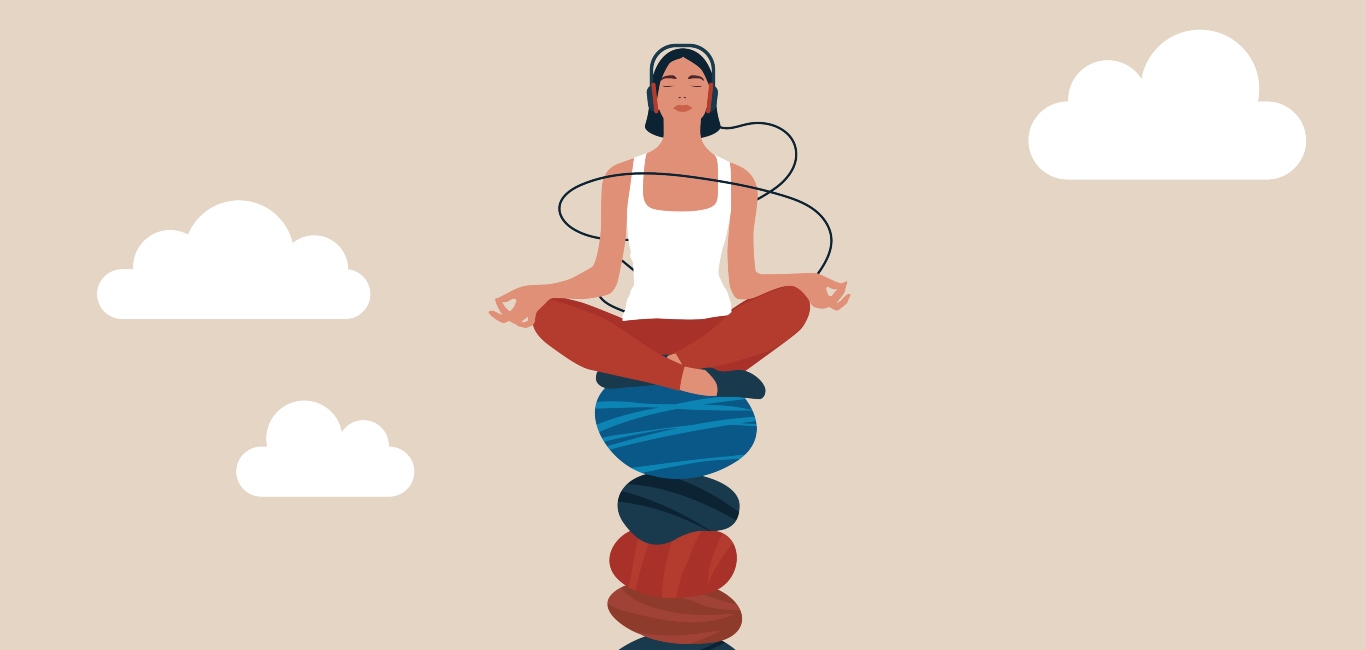
Emotions. We all know them and experience a hue of them frequently. Just what are they, why do they hit us and how do we cope with them for a balanced life?
Joyce Marter, Florida-based psychotherapist, mental health coach, author and speaker, describes emotions as `waves of energy that we experience in the body’.
“They are natural responses to our genetic predispositions and life experiences,” she says.
When one faces traumatic events which are difficult to process, “Negative emotions such as fear, anger or sadness can get stuck in our bodies and manifest as physical illness, mental health concerns such as anxiety or depression over time.” For this reason, she says that it is important to practise self-compassion and take time to express one’s emotions.
Experiencing or witnessing traumatic events, death of a loved one or natural disasters can result in immediate reactions like shock and denial. Or they could be long-term reactions that may not seem connected, like bouts of anger, anxiety, rejecting social interaction, inability to form meaningful relationships, depression, feeling disconnected, trust issues and sometimes even physical illness. Any experience that arouse in us intense negative or debilitating emotions can be traumatic.
Mental health professionals use a manual called DSM-5 or Diagnostic and Statistical Manual of Mental Disorders to identify and classify mental health disorders. The manual defines trauma as experiencing a life-threatening situation or actual death, sexual violation or serious injury.
People should be aware of certain psychological and physical responses to trauma. However, different people could react differently to the same situation. “While an event can be traumatic for one person, it might not be for another,” says Dr Ravindra S, psychologist at the Mind Research Foundation, Bengaluru.
Emotional symptoms of trauma
Dr Ravindra lists the following mental and physical signs to look out for in the aftermath of a traumatic event.
* Shock
* Confusion or difficulty in concentrating
* Anxiety
* Anger, irritability
* Feeling numb
* Withdrawing from social circles
* Self-blame
Physical symptoms of trauma could be:
* Fatigue
* Insomnia or nightmares
* Palpitation or racing heartbeat
* Difficulty in concentrating
* Irritable or easily agitated
* Aches and pains
* Tension in muscles
Potential damage
If a person has one or more of these symptoms, it is time to take control of the situation and work on one’s body and mind. If not addressed in time, over the long term, trauma can cause immense damage to the body.
Research says that over a period, it could lead to chronic musculoskeletal pain that affects the muscles, bones, ligaments, and tendons, and persists for a long period of time; hypertension, obesity, and cardiovascular disease.
Why emotional security is important
Emotional security is an important aspect of mental health and well-being. It can be defined as feeling safe, confident, and stable in one’s situations, emotional experiences and relationships. Emotional security is achieved through self-care and self-compassion, which can in turn can come from mindfulness, relaxation, exercise and connecting with others.
Ways to be emotionally secure
Emotional security is not a destination one can reach, it is a life-long journey. In the face of new stressors and setbacks, it is normal to sometimes feel emotionally insecure. But with self-care, support and other healthy coping strategies, one can work through difficult times and achieve a stable emotional state.
The ability to identify and manage one’s emotions and those of others is called emotional intelligence.
-
Mindfulness
Joyce Marter says mindfulness practices such as meditation, breath work, yoga and simply unplugging oneself from gadgets and connecting with life and nature can provide a release.
She says, “We should also create some space between ourselves and our emotional responses to life. Emotions can also be released by connecting and sharing with others, journalling, creating art, or through body movements such as dance or exercise.”
-
Exercise
Exercise is one of the best ways to take care of emotional and physical well-being; by turning our focus to the body and breath it reduces stress. “Just take 30 minutes out daily for yourself and use that time to deepen your bond with your body by exercising,” says Puja Shaw, a Kolkata-based nutrition and fitness coach.
-
Talk to loved ones
“Reach out to people you love. It is vital to stay connected with people and not isolate oneself,” says Dr Ravindra. Find yourself a safe environment where you can share your feelings without being judged. Having a counsellor also helps a great deal in this regard.
Divert yourself from the traumatic event by trying and pursuing “normal things” in life, such as catching up with a friend over lunch. In general, socialising can make you feel better because friendly interactions boost the release of feel-good hormones – oxytocin, serotonin, and dopamine — in the body.
Marter says one should take time for self-care and accessing support from others; this is essential for mental and physical well-being and emotional security. “Mindfulness cultivates equanimity as well as emotional intelligence — awareness of one’s emotional process, empathy for others’ emotional experiences, and the ability to navigate relationships with compassion for oneself and others,” she says.
As we practise connecting with our inner selves and internal experiences, we cultivate a healthy sense of oneself and the ability to form healthy attachments with others.
Marter explains, “We also develop a sense of emotional stability and security within ourselves, knowing that we are essentially okay, even if there is emotional turbulence in a relationship.” This, she says, is emotional security and can take years to cultivate.

















